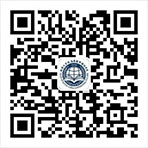
Jointly hosted by the Institute for China & World Studies and the School of Political Science & International Relations (SPSIR) of Tongji University and the Korea Foundation (KF), and organized by the Institute for China & World Studies and the School of Political Science & International Relations of Tongji University, the international webinar on “China-Japan-ROK Cooperation after the Pandemic” was successfully held on June 6, 2020. A total of more than 20 teachers and students participated in this virtual meeting.
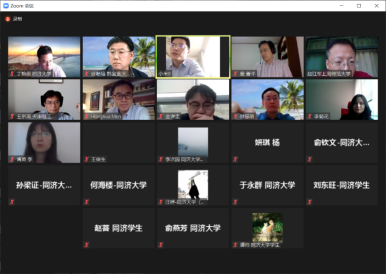
Associate Dean Zhong Zhenming moderated the opening ceremony. Tongji Distinguished Professor Men Honghua, President of the Institute for China & World Studies and Dean of SPSIR, and Seo Chang-bae, a professor at Pusan National University (PNU), delivered speeches in turn.
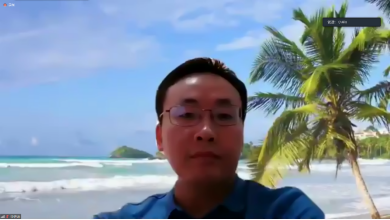
Dean Men elaborated on the background of this webinar and looked into the future of China-Japan-ROK cooperation after the pandemic. As he said, the outbreak of the Covid-19 pandemic has caused a major impact on the international system and landscape, allowing us to see the latest manifestation of the once-in-a-century changes, and to feel the importance of international cooperation and the return of strong nationalism. The cooperation among China, Japan and South Korea is a major issue affecting the world’s political, economic and cultural trends, deserving global attention. In the context of the increasingly fierce China-US competition, it is necessary to study the future of China-Japan-ROK cooperation. Looking forward, how the three neighbors can enhance cooperation at the economic level, achieve coordination and new breakthroughs at the political level, and deepen exchanges at the cultural level are topics worthy of further discussion.
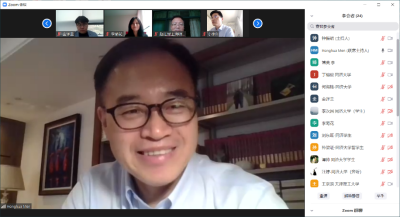
Prof. Seo expressed gratitude to the organizers of the event and the participating experts and scholars. He pointed out that the post-pandemic era is undergoing major changes, and the world is now in a very important era. At a time when profound changes have taken place in global politics, economy and culture, it is of great theoretical significance and practical value to hold academic seminars on China-Japan-ROK cooperation like this. He was full of expectations for the upcoming discussions and wished the meeting a complete success.
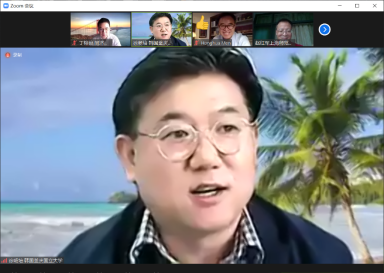
The pandemic is hard hitting the international system and landscape, which has created huge space and many development opportunities for China-Japan-ROK cooperation in the post-pandemic era. This webinar was mainly held to further think and study on regional cooperation in East Asia, especially China-Japan-ROK cooperation, after the pandemic. It focused on the following three topics: first, the strategic significance of China-Japan-ROK cooperation; second, China-Japan-ROK cooperation under Covid-19; and third, China-Japan-ROK cooperation after the pandemic. Famous experts and scholars from universities and research institutions in China, Japan and South Korea attended and spoke at the webinar.
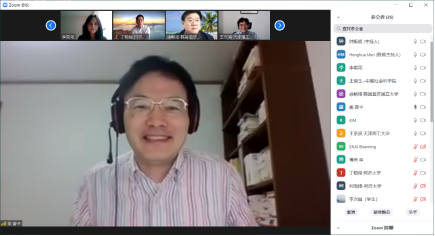
Associate Dean Zhong moderated the closing ceremony, where Doshisha University Prof. Yan Shanping and Dean Men made concluding remarks. Prof. Yan first thanked the experts and scholars for their wonderful speeches, and briefly shared his thoughts after participating in the webinar. First, as the pandemic is spreading across Europe and the US, we must be sympathetic to the situation in Europe, the US and Africa. We should not overemphasize the changes in the world order after the pandemic, so as to prevent other countries from becoming more vigilant towards China. Second, today’s world is still full of uncertainties, making it difficult for us to predict the future direction. In particular, the combination of economic factors and political factors are influencing and shaping the future international pattern and world order. Third, there is still a large space for China-Japan-ROK cooperation. The three countries have different levels of industrial development, implying plenty of space for future cooperation. The three are expected to make greater efforts to turn cooperation possibilities to actual cooperation.
In closing, Dean Men pointed out that China-Japan-ROK cooperation is vital to East Asia and the whole world. Regardless of whether the pandemic is over or not, every country is thinking about its strategic choices for future development. Regarding the future strategic direction of China-Japan-ROK cooperation, the three countries must not only pursue economic cooperation, but also attach importance to political coordination and mutual learning among civilizations. It’s a pity that the experts and scholars were unable to fully communicate and discuss face-to-face due to the time and space limits caused by the pandemic. It’s hoped that when the pandemic is under control, they would be able to gather at Tongji to imagine the future and discuss the future development of China-Japan-ROK cooperation.




